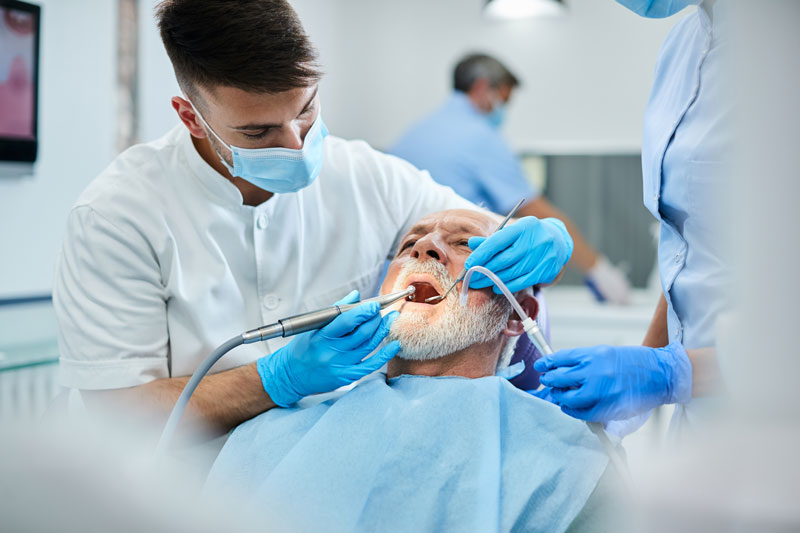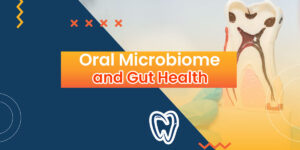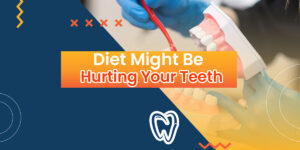Dental emergency can strike at any moment, causing pain, discomfort, and anxiety. Knowing how to handle a dental emergency effectively can make a significant difference in the outcome of the situation. This comprehensive guide will provide you with essential information on how to handle various dental emergencies, from identifying the type of emergency to immediate actions and when to seek professional help.
Understanding Dental Emergencies
A dental emergency is any situation involving your teeth, gums, or mouth that requires immediate attention to alleviate severe pain, stop bleeding, or save a tooth. Common dental emergencies include:
Toothache
Chipped or broken tooth
Knocked-out tooth
Partially dislodged tooth
Lost filling or crown
Abscess or infection
Soft tissue injuries
Let’s explore how to handle each of these situations step by step.

Toothache
Toothaches can be caused by various factors, including tooth decay, gum disease, or an abscess. Identifying the cause can help you determine the best course of action.
Immediate Actions
Rinse your mouth: Use warm water to rinse your mouth thoroughly.
Floss gently: Remove any food particles stuck between your teeth that might be causing the pain.
Use a cold compress: Apply a cold compress to the outside of your cheek to reduce swelling and numb the pain.
Avoid painkillers on the gum: Do not place aspirin or other painkillers directly on the gums, as this can cause burns.
Seeking Professional Help
If the toothache persists or is accompanied by swelling, fever, or pus, contact your dentist immediately. These symptoms may indicate an infection that requires prompt treatment.
Chipped or Broken Tooth
Save the pieces: Rinse any broken pieces of the tooth and keep them safe.
Rinse your mouth: Use warm water to clean your mouth and the affected area.
Stop the bleeding: If there is bleeding, apply gauze to the area for about 10 minutes or until the bleeding stops.
Use a cold compress: Apply a cold compress to the outside of your cheek to reduce swelling.
Contact your dentist as soon as possible. Depending on the severity of the break, your dentist may be able to reattach the broken piece or use bonding or a crown to repair the tooth.
Knocked-Out Tooth
Handle the tooth carefully: Pick up the tooth by the crown (the chewing surface), avoiding the roots. Rinse the tooth: If the tooth is dirty, rinse it gently with water. Do not scrub or remove any attached tissue fragments.
Reinsert the tooth: If possible, try to place the tooth back into its socket. Hold it in place with clean gauze or a cloth.
Keep the tooth moist: If you cannot reinsert the tooth, place it in a container of milk or saline solution, or keep it in your mouth between your cheek and gums.
See your dentist immediately. Time is critical for saving a knocked-out tooth, and the chances of successful reattachment are highest within the first hour.
Emergency Dental Care: How To Handle Common Dental Emergencies Like A Pro
Partially Dislodged Tooth
Apply a cold compress: Use a cold compress on the outside of your cheek to reduce swelling.
Take over-the-counter pain relievers: Use pain relievers like ibuprofen to alleviate pain and reduce inflammation.
Contact your dentist right away. Your dentist can reposition and stabilize the tooth, and may need to perform further treatments to save it.
Lost Filling or Crown
Save the filling or crown: If you can find the lost filling or crown, keep it safe.
Use dental cement: You can use over-the-counter dental cement or denture adhesive to temporarily reattach the crown or cover the cavity.
See your dentist as soon as possible. Your dentist can permanently reattach the crown or replace the filling to protect the tooth.
Abscess or Infection
An abscess is a painful, pus-filled infection that can occur in the gums or at the root of a tooth. Symptoms include severe pain, swelling, fever, and a bad taste in the mouth.
Rinse with saltwater: Rinse your mouth with a solution of warm water and salt several times a day to reduce pain and draw out pus.
Use a cold compress: Apply a cold compress to the outside of your cheek to reduce swelling.
Contact your dentist immediately. An abscess requires prompt treatment to prevent the infection from spreading. Your dentist may need to drain the abscess, prescribe antibiotics, or perform a root canal.
Soft Tissue Injuries
Soft tissue injuries include cuts, tears, or punctures to the lips, cheeks, tongue, or gums.
Rinse your mouth: Use a mild saltwater solution to rinse your mouth and clean the area.
Stop the bleeding: Apply gauze or a clean cloth to the injury, and hold it in place with gentle pressure for about 10-15 minutes.
Use a cold compress: Apply a cold compress to the outside of your cheek to reduce swelling and pain.
If the bleeding does not stop or the injury is severe, seek immediate medical attention. Your dentist or a hospital emergency room can provide the necessary treatment.
Prevention Tips for Dental Emergencies
While it’s impossible to prevent all dental emergencies, taking some precautions can reduce your risk:
Practice good oral hygiene: Brush and floss regularly to maintain healthy teeth and gums.
Wear a mouthguard: If you participate in contact sports or activities with a risk of injury, wear a mouthguard to protect your teeth.
Avoid chewing hard objects: Do not chew ice, popcorn kernels, or hard candy, as these can crack or break your teeth.
Be cautious with food: Avoid using your teeth to open packages or bite into hard objects.
Regular dental check-ups: Visit your dentist regularly for check-ups and cleanings to catch and address potential problems early.
Dental emergencies can be stressful and painful, but knowing how to handle them can make a significant difference in the outcome. By taking immediate action, using appropriate first-aid measures, and seeking professional help promptly, you can protect your dental health and prevent further complications.
Remember, maintaining good oral hygiene and taking preventive measures can reduce your risk of experiencing a dental emergency. Stay informed, stay prepared, and keep your smile healthy.




